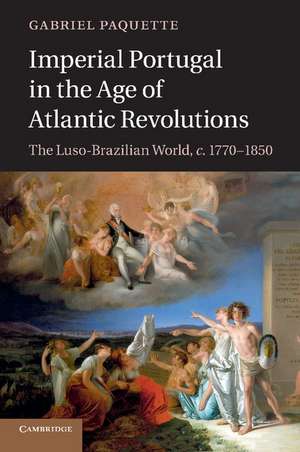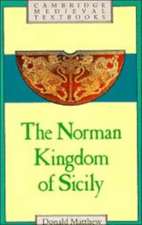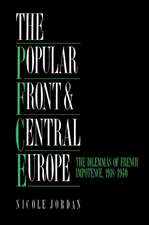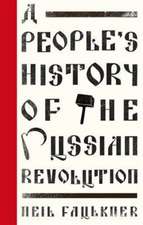Imperial Portugal in the Age of Atlantic Revolutions: The Luso-Brazilian World, c.1770–1850
Autor Gabriel Paquetteen Limba Engleză Paperback – 7 mai 2014
| Toate formatele și edițiile | Preț | Express |
|---|---|---|
| Paperback (1) | 246.30 lei 43-57 zile | |
| Cambridge University Press – 7 mai 2014 | 246.30 lei 43-57 zile | |
| Hardback (1) | 863.13 lei 43-57 zile | |
| Cambridge University Press – 13 mar 2013 | 863.13 lei 43-57 zile |
Preț: 246.30 lei
Nou
Puncte Express: 369
Preț estimativ în valută:
47.17€ • 48.60$ • 39.51£
47.17€ • 48.60$ • 39.51£
Carte tipărită la comandă
Livrare economică 24 februarie-10 martie
Preluare comenzi: 021 569.72.76
Specificații
ISBN-13: 9781107640764
ISBN-10: 1107640768
Pagini: 466
Ilustrații: 10 b/w illus. 1 map
Dimensiuni: 155 x 230 x 28 mm
Greutate: 0.68 kg
Editura: Cambridge University Press
Colecția Cambridge University Press
Locul publicării:New York, United States
ISBN-10: 1107640768
Pagini: 466
Ilustrații: 10 b/w illus. 1 map
Dimensiuni: 155 x 230 x 28 mm
Greutate: 0.68 kg
Editura: Cambridge University Press
Colecția Cambridge University Press
Locul publicării:New York, United States
Cuprins
Introduction; 1. The reform of empire in the late eighteenth century; 2. From foreign invasion to imperial disintegration; 3. Decolonization's progeny: restoration, disaggregation, and recalibration; 4. The last Atlantic revolution: emigrados, Miguelists, and the Portuguese Civil War; 5. After Brazil, after civil war: the origins of Portugal's African empire; Conclusion: the long shadow of Empire in the Luso-Atlantic world; Bibliography.
Recenzii
'By asking how the Portuguese empire lasted not why it lagged, Gabriel Paquette overturns conventional historical wisdom on Brazil, Portugal and the Atlantic world. His erudite study also convincingly shows how essential political and intellectual history are for transnational and imperial history. All in all, a masterly achievement.' David Armitage, Lloyd C. Blankfein Professor of History, Harvard University
'This is an excellent work, which analyses the Luso-Brazilian world in the wider context of the Atlantic revolutions, breaking away from national frameworks of historiography that have constrained research. The vigorous reform of the Portuguese empire, followed by independent monarchical Brazil and long term disentanglement of the different parts of the empire, are freshly assessed through a new evaluation of continuities in the economic, social and cultural fields.' Francisco Bethencourt, Charles Boxer Professor, King's College London
'Gabriel Paquette brilliantly provides both historical evidence and analytical arguments allowing for a better understanding of the breakdown of the Portuguese empire in South America. He also presents a convincing explanation of the persistent and friendly relationship between Portugal and Brazil after Brazilian independence in 1822. The book offers new insights to demonstrate that the end of colonial empires is not necessarily the outcome of conflicts and rebellions, but rather the consequence of continuous and enlightened reforms. The book meets high research standards and is compulsory reading for all those interested in colonial and postcolonial historical studies.' José Luís Cardoso, University of Lisbon
'Painstaking, scholarly, revealing and judicious … It is inspiring to be told that we should speak of 'degrees of independence' and reject 'the neat demarcation between colonial and national history'. It is comforting to find a historian alert to 'fuzziness, wobbliness, ambiguity' and ambivalence. Some readers may be disappointed at the hesitancy of the final summation, in which Paquette sees both 'discontinuity and seamless transition' at work. But his willingness to relish the beguiling contradictions of evidence helps to make this painstaking, scholarly, revealing and judicious work thoroughly admirable.' Felipe Fernandez-Armesto, The Times Literary Supplement
'The book focuses on the thoughts and actions of policy makers, pamphleteers, and foreign diplomats whose intrigues place Portugal's fate very much in an international context.' Choice
'Paquette has provided us with an excellent narrative on the Luso-Brazilian Atlantic relationship that greatly transcends the narrow confine of the 1822 revolution. By weaving together Angolan, Brazilian and Portuguese developments, he has written a complex narrative of the southern Atlantic, which will speak to specialists of the Lusophone world. In addition, this outstanding work should also inform the reading of Atlantic Ocean experts and world historians.' Rainer Buschmann, H-Empire
'… a specific gap in the historical literature … The period of 1770-1850 can be a complex and confusing epoch in the history of Portugal and its empire, Paquette's work is an important read for anyone aspiring to work on the subject in the ascribed periodization.' Y. H. Teddy Sim, Bulletin for Spanish and Portuguese Historical Studies
'Paquette's narrative and analysis [is] … the most perceptive since the publication of the Manoel de Oliveira Lima's still indispensable D. Joao VI no Brasil … Paquette reconstructs from a new angle the familiar events of Brazilian independence.' Thomas M. Cohen, The Americas
'… an impressive synthesis of secondary works … The book's major contributions include Paquette's willingness to give conservative and reactionary thinkers their due, to identify the long-term connections between eighteenth-century imperial reform and nineteenth century conservative thought, to elucidate complex transatlantic political manoeuvring and to remind us of the American empire's many legacies for later Portuguese history.' Hendrik Kraay, Journal of Latin American Studies
'… this book is a most welcome addition to the historiography of the Portuguese world. It confronts a phase in the history of that world too long ignored and avoided by historians. Easily the best account available on its subject, it is a considerable achievement and deserves to be widely read.' Anthony Disney, American Historical Review
'Paquette has little to say about the military dimension of the independence process. Instead, he is interested in high politics and has written a book of great value, based on a dazzling number of published sources and research in thirty-four archives on both sides of the Atlantic. His work is especially strong in its discussion of the great variety of constitutional projects.' Wim Klooster, Latin American Research Review
'This is an excellent work, which analyses the Luso-Brazilian world in the wider context of the Atlantic revolutions, breaking away from national frameworks of historiography that have constrained research. The vigorous reform of the Portuguese empire, followed by independent monarchical Brazil and long term disentanglement of the different parts of the empire, are freshly assessed through a new evaluation of continuities in the economic, social and cultural fields.' Francisco Bethencourt, Charles Boxer Professor, King's College London
'Gabriel Paquette brilliantly provides both historical evidence and analytical arguments allowing for a better understanding of the breakdown of the Portuguese empire in South America. He also presents a convincing explanation of the persistent and friendly relationship between Portugal and Brazil after Brazilian independence in 1822. The book offers new insights to demonstrate that the end of colonial empires is not necessarily the outcome of conflicts and rebellions, but rather the consequence of continuous and enlightened reforms. The book meets high research standards and is compulsory reading for all those interested in colonial and postcolonial historical studies.' José Luís Cardoso, University of Lisbon
'Painstaking, scholarly, revealing and judicious … It is inspiring to be told that we should speak of 'degrees of independence' and reject 'the neat demarcation between colonial and national history'. It is comforting to find a historian alert to 'fuzziness, wobbliness, ambiguity' and ambivalence. Some readers may be disappointed at the hesitancy of the final summation, in which Paquette sees both 'discontinuity and seamless transition' at work. But his willingness to relish the beguiling contradictions of evidence helps to make this painstaking, scholarly, revealing and judicious work thoroughly admirable.' Felipe Fernandez-Armesto, The Times Literary Supplement
'The book focuses on the thoughts and actions of policy makers, pamphleteers, and foreign diplomats whose intrigues place Portugal's fate very much in an international context.' Choice
'Paquette has provided us with an excellent narrative on the Luso-Brazilian Atlantic relationship that greatly transcends the narrow confine of the 1822 revolution. By weaving together Angolan, Brazilian and Portuguese developments, he has written a complex narrative of the southern Atlantic, which will speak to specialists of the Lusophone world. In addition, this outstanding work should also inform the reading of Atlantic Ocean experts and world historians.' Rainer Buschmann, H-Empire
'… a specific gap in the historical literature … The period of 1770-1850 can be a complex and confusing epoch in the history of Portugal and its empire, Paquette's work is an important read for anyone aspiring to work on the subject in the ascribed periodization.' Y. H. Teddy Sim, Bulletin for Spanish and Portuguese Historical Studies
'Paquette's narrative and analysis [is] … the most perceptive since the publication of the Manoel de Oliveira Lima's still indispensable D. Joao VI no Brasil … Paquette reconstructs from a new angle the familiar events of Brazilian independence.' Thomas M. Cohen, The Americas
'… an impressive synthesis of secondary works … The book's major contributions include Paquette's willingness to give conservative and reactionary thinkers their due, to identify the long-term connections between eighteenth-century imperial reform and nineteenth century conservative thought, to elucidate complex transatlantic political manoeuvring and to remind us of the American empire's many legacies for later Portuguese history.' Hendrik Kraay, Journal of Latin American Studies
'… this book is a most welcome addition to the historiography of the Portuguese world. It confronts a phase in the history of that world too long ignored and avoided by historians. Easily the best account available on its subject, it is a considerable achievement and deserves to be widely read.' Anthony Disney, American Historical Review
'Paquette has little to say about the military dimension of the independence process. Instead, he is interested in high politics and has written a book of great value, based on a dazzling number of published sources and research in thirty-four archives on both sides of the Atlantic. His work is especially strong in its discussion of the great variety of constitutional projects.' Wim Klooster, Latin American Research Review
Notă biografică
Descriere
A pioneering account of the links between Portugal and Brazil which survived despite the demise of the Portuguese Atlantic empire.








